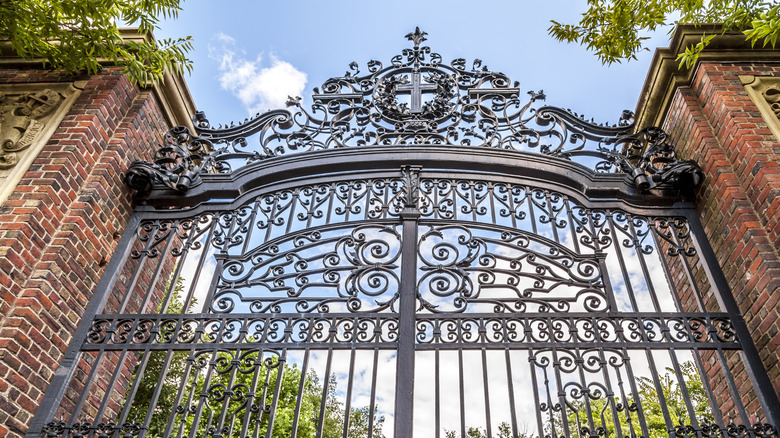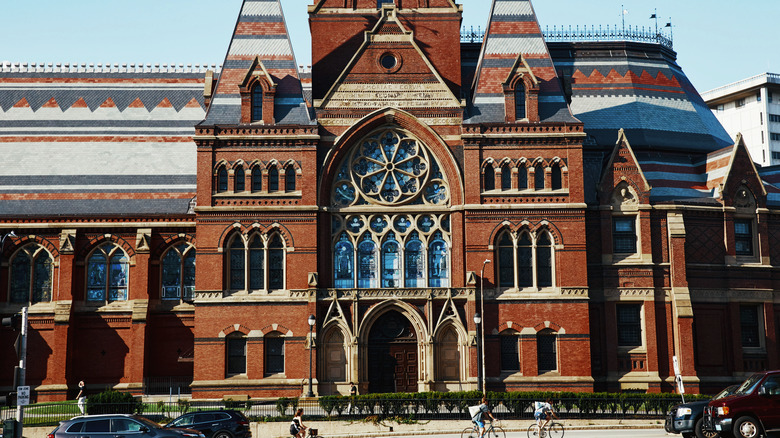What Happened After Gina Grant Was Denied Entry To Harvard For Killing Her Mother?
Gina Grant was just 14 years old when she brutally murdered her mother on September 13, 1990. Although there were mitigating circumstances surrounding the killing, Grant's unusual case provoked mixed reactions after her place at Harvard University was revoked five years after the crime took place. At the time, Grant's criminal history raised important ethical questions about forgiveness, remorse, and juvenile culpability.
When the case came to trial, it was not so easy to demonize Grant, who undoubtedly came from an unhappy home. Her dad died when she was still quite young, while her mother, Dorothy Mayfield, struggled with alcohol addiction and spent some time in rehab. Grant spent more and more time at a friend's house to avoid her mother, who was reportedly drunk every night. The prosecution and the defense quibbled over how functional her mother actually was, but it seemed undeniable that Grant was scared of her mother, having gone so far as to remove her handgun from the house for safety. It also emerged that the pair had reached loggerheads over Grant's boyfriend, a disagreement the prosecution claimed was the real motive for the killing.
One night, Grant wound up bludgeoning her mother to death with a crystal candlestick, and investigators believe her boyfriend later stabbed her mother in the neck with a knife, to make the killing look like suicide. Grant would later blame the killing on a house invasion and even her own boyfriend before the real story came out.
Was Harvard right to reject Gina Grant?
Given the difficult circumstances surrounding Gina Grant's case, she and her boyfriend, Jack Hook, were only given one-year-long sentences. Grant served just eight months of hers and was later released on probation to live with her aunt and uncle.
An exceptionally bright young girl with an IQ of 150, Grant was offered a place at Harvard in 1995, but it was quickly rescinded again when they discovered what she had done less than five years earlier. After Grant was rejected, the case was debated in the press, with journalists and academics weighing in on both sides. The New York Times reported that Grant's parole board felt that six months after the killing, the young girl showed no remorse. The case was made by some that Grant's great intelligence had helped her get out of trouble, that she was a manipulator and not a victim. That same year, the Times also published an opinion piece in defense of Grant, arguing that her excellent academic credentials were evidence enough of her rehabilitation (via The New York Times).
Among those who came to Grant's defense were staff at Harvard itself. Harvard Law professors, Alan Dershowitz and Charles Ogletree, both argued that the university had acted unfairly. Nonetheless, the university refused to reverse its decision. Grant had told Harvard that her mother had died in an auto accident, which meant they had grounds to reject her for lying, if not for the murder itself.
Where did Grant end up?
The Harvard fiasco put Gina Grant in a difficult position, but she eventually found a place at another college. According to The New York Times, after her rejection by Harvard went public, elite universities Columbia and Barnard also rescinded their offers. In an interview with the Harvard Crimson, her uncle told reporters that she considered taking a year off to work out what to do. On the other hand, Grant was still determined to pursue a medical career, having won the prestigious Estelle Paris Scholarship from Cambridge Hospital, around the time she graduated high school.
Luckily for Grant, another university threw her a lifeline, and she eventually accepted an offer from Tufts University. While there, she still had to deal with intense scrutiny, however, after the college's conservative campus journal, The Primary Source, distributed fliers around the university, condemning her as a killer.
In response to the criticism, a statement was released by Tufts University, stating: "It is our view that having paid her debt to society, she should not be denied the opportunity of pursuing a college degree ... Any other decision would have been antithetical to our fundamental values and beliefs" (via The Yale Daily News).


